Aside from the Yiwu cake, I also got a bag full of maocha the same day, free of charge, that is supposedly from the same village. I think she said it’s from her neighbour and her parents sent it over as a gift of sorts. The bag is quite substantial, and there’s at least something like 150g of tea in there, so it’s quite enough for current drinking (in fact, already way more tea than I need).
So I brewed it up today to see if it’s the same batch or different one from the tea in the cakes, and also to see if there’s anything interesting about these.
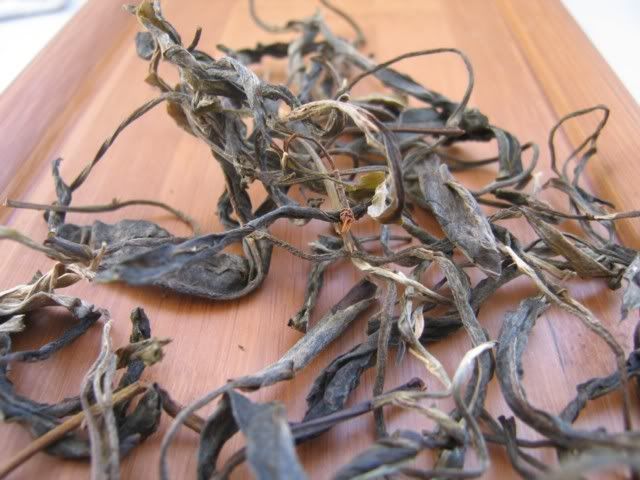
They’re pretty impressive looking loose tea. Leaves are large, and quite long. I have read that tea farmers in Yiwu these days are not rolling the tea as much as they used to, partly because of demand from tea makers that they want larger faced leaves — because they look better. Nobody knows how this affects the taste in the long run. My guess is it’s probably not a whole lot, but….
One annoying thing about loose maocha is that they are hard to fit into a gaiwan, until they get wet anyway. I stuffed the gaiwan, essentially
This is how it looks brewed
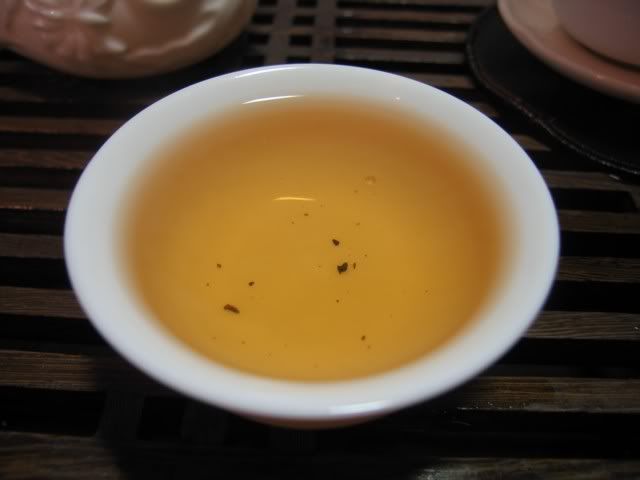
Colour stayed pretty consistent for 10+ infusions, after which it started dropping off a bit unless I prolong the time, in which case it stayed with the same colour for longer. The taste is, again, classically Yiwu. It’s mild, almost tasteless when in the mouth, and has a nice fragrance that is floral after you swallow it. There’s a sense of coolness coming from the tea, extending down to the throat, although I think this particular one is not quite as strong as the leaves from the cake. Cha Qi is evident, as my heart started pumping and I was sweating after drinking two cups of this. It really worked me up and that doesn’t always happen. After about 4-5 infusions, my whole mouth was filled with sensations of sweetness. It was sweet, sugary sweet. Huigan is immediate and overwhelming. I don’t think I’ve ever really had this feeling before of such sweetness in drinking tea, but now I have. I’ve read about it on Sanzui from someone who knows what he’s talking about vis a vis Yiwu teas… now I know what he meant by “wave after wave of huigan that is endless”
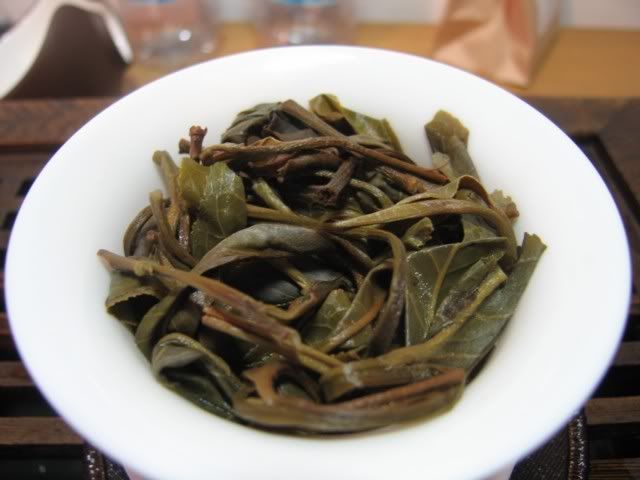
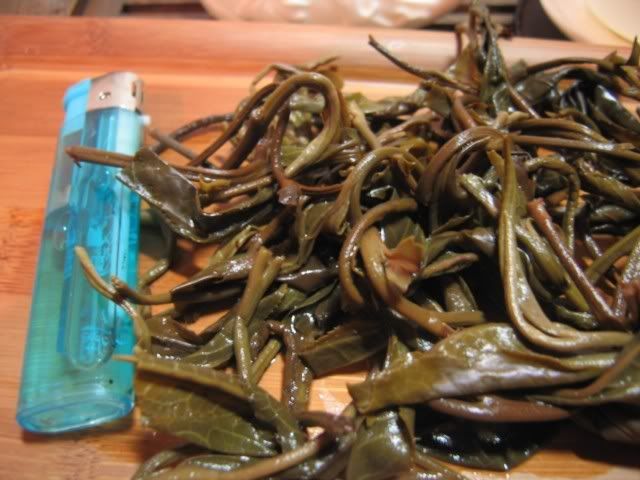
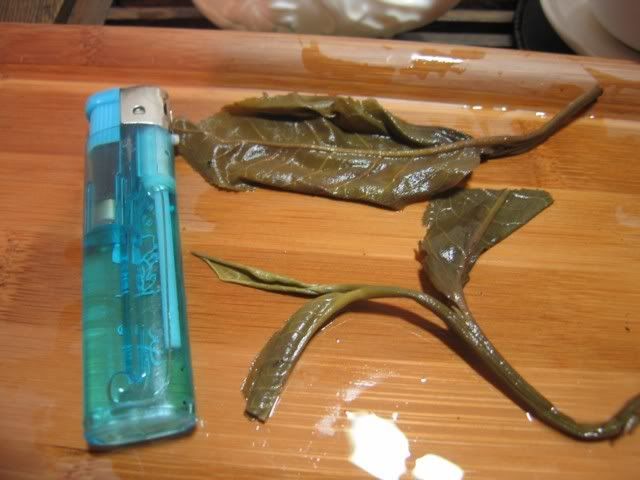
Since it’s maocha, you get a nicer look at the whole leaves (whereas from cakes you have to peel them off very carefully to preserve whole leaves). Look quite nice, a little less red than the stuff on the cake, I think, although it could have something to do with the processing or just luck of the draw. Some of the leaves have very noticeable veins — you can feel the smaller veins on the leaf, which was quite impressive. They say these are from old tea trees, some of which are a few hundred years old. I can’t verify the claim, of course, but this is probably not your typical plantation tea. Plantation tea supposedly have a more bitter taste, and the aromas linger mostly in the front of the mouth, while older growth tea are more to the back of your mouth and very un-bitter. Plantation teas evolve slower, and take longer to age, whereas older growth tea will age faster.
All of this, of course, is what other people told me. It’ll take me a few years to verify these info 🙂
I think next time I go to Maliandao I should pay a visit to the big factory stores, like Menghai and Xiaguan, and try out their goods more thoroughly, so to have a basis for comparison. I might also want to buy a few, but the prices for those goods are quite high, especially Menghai. I’m not sure if they’re worth it. For two or three decent Menghai I can get a cake of this Yiwu.

0 responses so far ↓
There are no comments yet...Kick things off by filling out the form below.